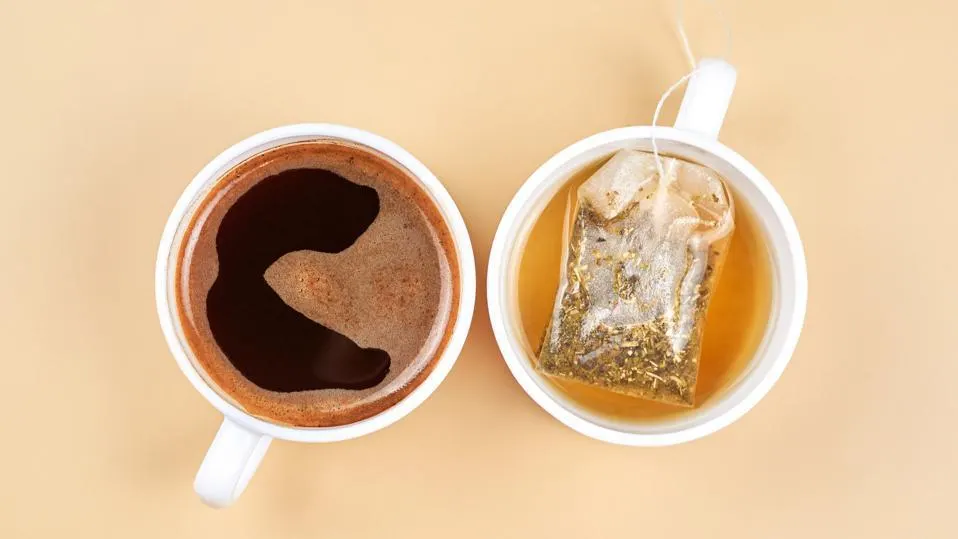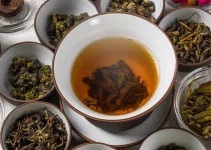Is it Better to Drink More Tea or Coffee?
Introduction
In a world where caffeine rules our mornings and gives us that much-needed energy boost, the age-old debate between tea and coffee enthusiasts rages on. Each camp staunchly defends its brew of choice, but what does science say? Is it better to drink more tea or coffee? Let’s dive into this stimulating topic, examining the health benefits, caffeine content, and the various nuances that make these two beverages unique.
Table of Contents
Health Benefits of Tea
1. Antioxidant Powerhouse
- Tea is packed with antioxidants, known as polyphenols, which help fight off free radicals and reduce oxidative stress.
- These antioxidants can potentially lower the risk of chronic diseases, including heart disease and certain cancers.
2. Calming Effects
- Tea contains an amino acid called L-theanine, which promotes relaxation and reduces stress.
- It can improve focus and mental clarity without the jitters associated with coffee.
3. Weight Management
- Some studies suggest that compounds in green tea can aid in weight loss by boosting metabolism and fat oxidation.
- Tea is often associated with promoting a healthy lifestyle.
Health Benefits of Coffee
4. Increased Alertness
- Coffee’s high caffeine content provides a quick energy boost and increases alertness.
- It can help combat fatigue and enhance cognitive function.
5. Potential Longevity
- Some research indicates that coffee consumption may be linked to a reduced risk of certain diseases, such as Parkinson’s and Alzheimer’s.
- Coffee’s antioxidants contribute to this potential health benefit.
6. Social Bonding
- Coffee has a unique way of bringing people together, fostering social interactions in cafes and gatherings.
Caffeine Content
7. Tea’s Moderate Caffeine
- Tea generally contains less caffeine than coffee, making it a milder choice for those sensitive to caffeine.
- Varieties like black tea have more caffeine than herbal teas.
8. Coffee’s Robust Caffeine Kick
- Coffee, on the other hand, packs a powerful caffeine punch, making it a go-to for those needing a wake-up call.
- Espresso has the highest caffeine content among coffee beverages.
The Hydration Factor
9. Tea’s Hydrating Nature
- Tea is a hydrating beverage that can contribute to your daily fluid intake.
- Herbal teas, in particular, offer various flavors without caffeine.
10. Coffee’s Drying Effect
- Coffee’s diuretic properties can lead to increased urination, potentially impacting hydration levels.
- It’s essential to balance coffee consumption with water intake.
Personal Preference Matters
11. Taste and Aroma
- The choice between tea and coffee often boils down to personal taste and aroma preferences.
- Tea offers a wide range of flavors, from floral to earthy, while coffee boasts a rich, bold flavor profile.
12. Ritual and Culture
- Many cultures have specific rituals and traditions associated with tea or coffee consumption.
- These cultural factors often influence one’s choice of beverage.
Moderation is Key
13. Avoiding Excess
- It’s essential to consume both tea and coffee in moderation.
- Excessive caffeine intake can lead to sleep disturbances, anxiety, and other health issues.
14. Individual Tolerance
- Everyone’s tolerance to caffeine varies, so it’s crucial to pay attention to your body’s signals.
- Some individuals can handle more caffeine than others without adverse effects.
Conclusion
In the eternal battle of tea vs. coffee, there’s no one-size-fits-all answer to which is better. Both beverages offer unique health benefits, caffeine content, and cultural significance. The key is to enjoy them in moderation and align your choice with your personal preferences and tolerance for caffeine.

FAQs (Frequently Asked Questions)
1. Can I drink both tea and coffee in a day?
- Yes, you can enjoy both tea and coffee in moderation. Be mindful of your caffeine intake to avoid overstimulation.
2. Which is better for weight loss: tea or coffee?
- Green tea is often associated with weight loss due to its metabolism-boosting properties, but coffee can also aid in weight management when consumed sensibly.
3. Is decaffeinated coffee a healthy choice?
- Decaffeinated coffee is a suitable option for those who want to reduce caffeine intake while still enjoying the taste of coffee.
4. Does tea stain teeth more than coffee?
- Tea can stain teeth, but coffee is generally considered a more potent tooth stainer due to its darker color.
5. Can children drink tea or coffee?
- It’s advisable for children to limit their caffeine intake. Herbal teas or caffeine-free alternatives are safer options for them




